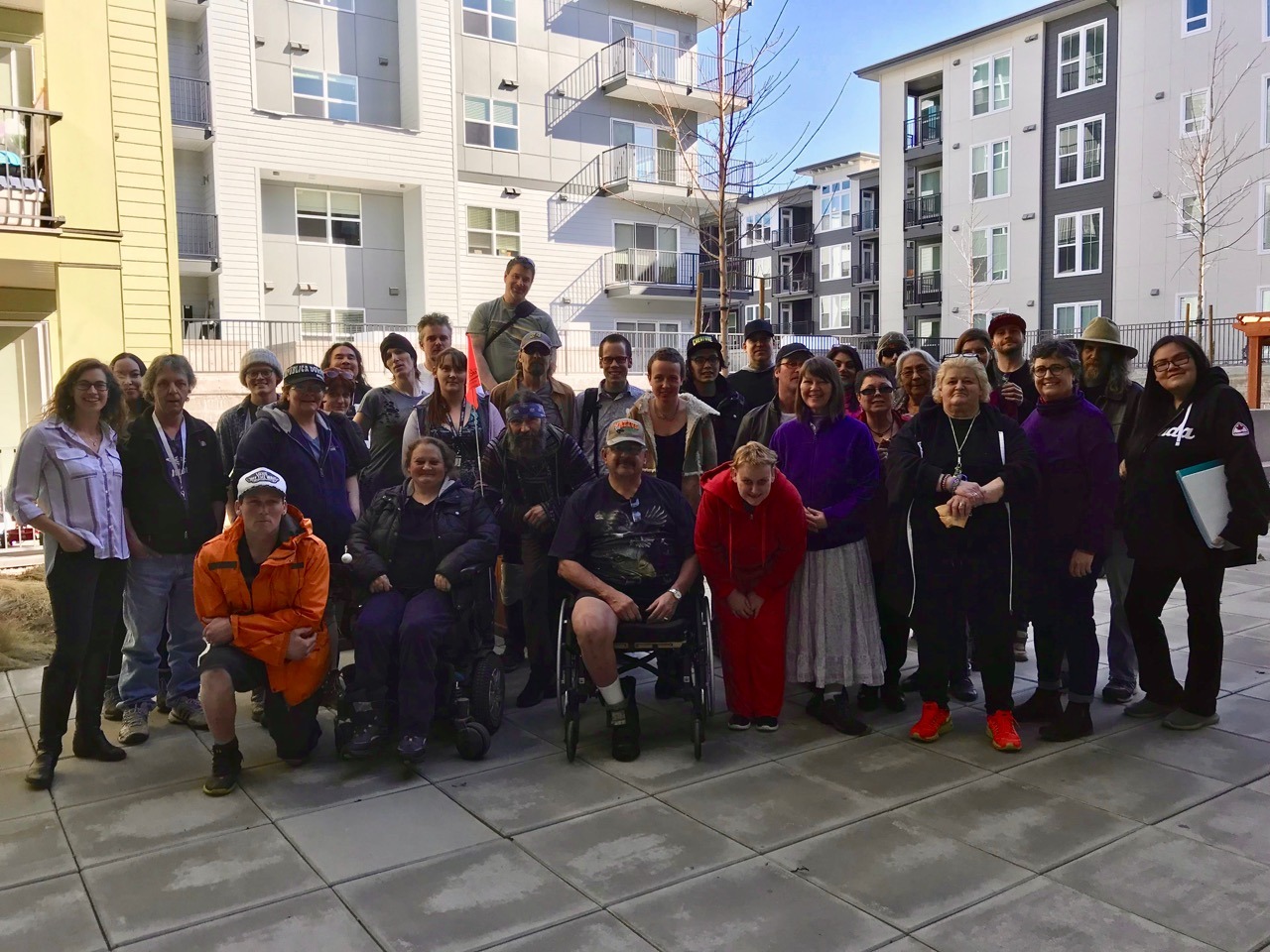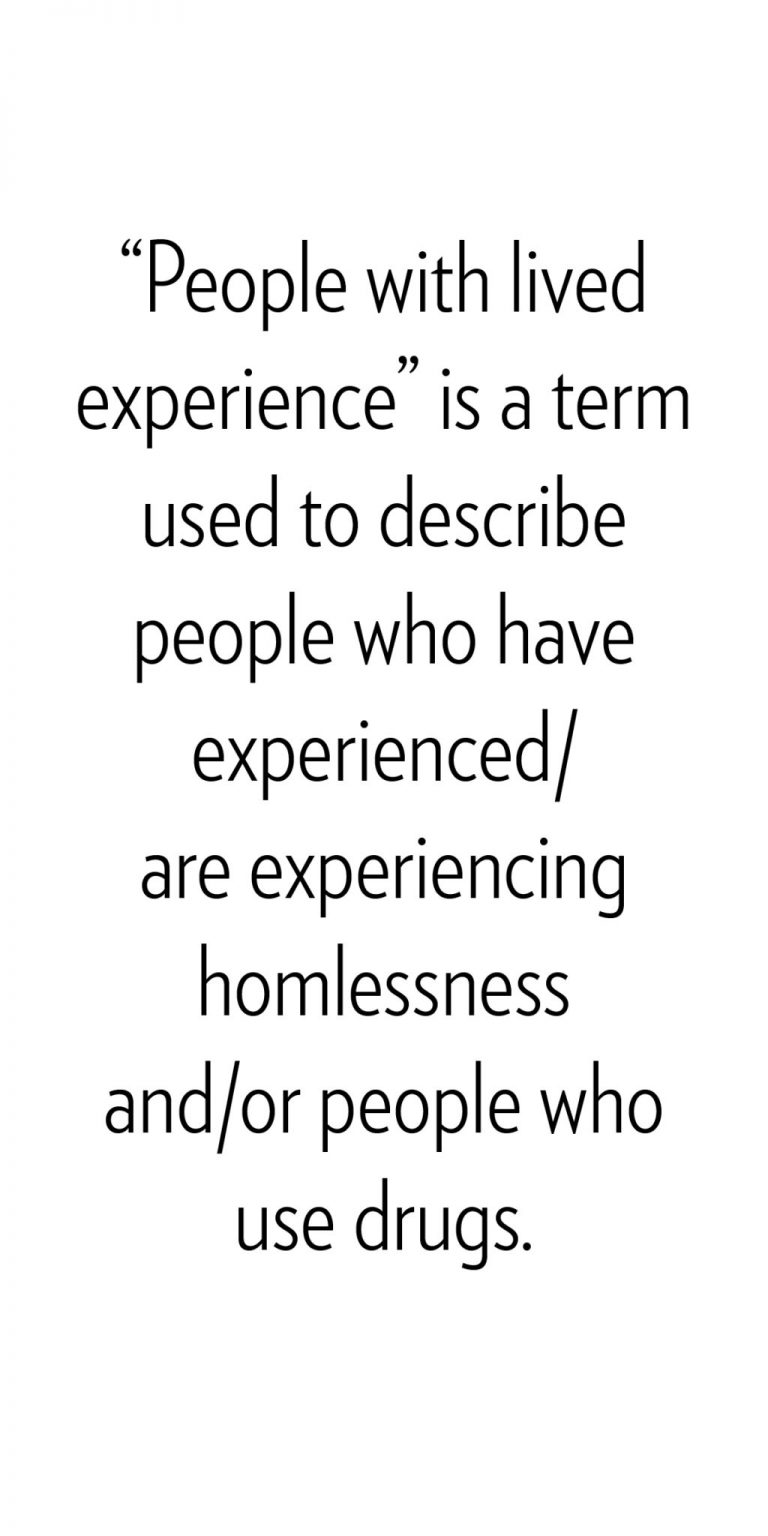
18 April 2019
Innovating for Empowerment & Employment
As part of World Innovation and Creativity Week, we’re taking the opportunity to share a new Kelowna-based social enterprise we’ve been supporting. PEOPLE is innovating with communities and across sectors to create employment opportunities for people with lived experience.
Lived Experience to Employable Expertise
 In early 2019, Urban Matters CCC helped launch PEOPLE. An acronym for Paid Employment Opportunities for People with Lived Experiences, PEOPLE is a social enterprise that provides training and mentorship for people with lived experiences so they can contribute to improving community well-being and social services for folks seeking help.
In early 2019, Urban Matters CCC helped launch PEOPLE. An acronym for Paid Employment Opportunities for People with Lived Experiences, PEOPLE is a social enterprise that provides training and mentorship for people with lived experiences so they can contribute to improving community well-being and social services for folks seeking help.
PEOPLE’s vision is a future where people with lived experiences have opportunities to meaningfully contribute to increased inclusion in community and business settings. For Erin Welk, whose work at Urban Matters is centred on increasing social and economic inclusion, this vision is inspiring.
Working alongside the agencies and individuals that have brought PEOPLE to life, she is motivated by the fact that “people with lived experience will have the opportunity become the leaders in finding solutions for community challenges.” And even though these challenges are complex, she is optimistic, “with a willingness to listen, to get creative, and to let people with lived expertise lead the way, we can find solutions.”
Emerging from a Community-Inspired Vision
The concept for PEOPLE emerged during the development of the Journey Home Strategy in Kelowna, BC. The people working on the Journey Home Strategy through the Lived Experience Circle on Homelessness (LECoH) expressed their desire to participate in designing and implementing solutions to the challenges created by homelessness. On a day-to-day basis, members of LECoH were living in the very scenarios the committee had been created to tackle.
Around the same time, Kelowna’s Community Action Team (CAT), a network of about twenty organizations which works collaboratively to address the opioid crisis, expressed a desire to employ people with lived experience in ways that would help raise awareness, compassion, and care throughout the community.
Through convening the Kelowna CAT, Urban Matters identified an opportunity to use a social enterprise model to create a sustainable employment program for those with lived experience. “Because programs like this typically rely on grants, there can be a lot of uncertainty. We saw an opportunity to do it differently,” Welk explains.
PEOPLE functions as an intermediary organization that holds employment contracts. This means a government or local business will enter into a contract with PEOPLE and then an employee or employees from PEOPLE will fulfill the contract. Welk explains this structure as being essential to the sustainability of the initiative:
“By functioning as a social enterprise, we can enter into contracts with businesses and organizations that will ensure people are paid and receiving wrap around supports in their employment. We’re not waiting for the next grant to come in to see if we can run the program.”
A Diversity of Training
PEOPLE includes several training modules which have been designed to lead into paid employment opportunities. The curriculum for the first cohort of participants will include modules in communications and conflict resolution as well as training in harm reduction, and administration of naloxone.
PEOPLE is actively creating contract employment opportunities with local employers to offer meaningful work opportunities for the first cohort of 36 participants – expected to start as early as June 2019.
It is intended that people with lived experiences will have opportunities to work with social sector organizations that, traditionally, may have provided services to them. In addition, the cohort may be employed to support neighbourhood relationships, cleanliness, and festival events – all with the aim of shifting perceptions and increasing compassion in our community.
Imagining Another Way of Doing Things
Welk describes this initiative as innovative in the sense that it is “disrupting traditional relationships within the community.” Simply put, the traditional perspective says that community, government, and the social serving sector holds the expertise and serves people who are seeking help.
“By flipping this around, providing folks with lived experience opportunities for training and mentorship, and then placing them into roles where they are valued for their expertise, we are reversing that relationship and, perhaps most importantly, placing people with lived experience into roles where they can make a difference in the lives of their peers.”
Welk emphasizes that people who have experience living in day-to-day situations of precarity have important expertise.
“They are the architects of change in our community – they’re the ones coming up with the most interesting, most creative solutions.”
As PEOPLE continues to develop, we will post more information on our website, including how employers can contribute to this initiative. We’ll also be sharing exciting information about the development of the Indigenous cultural mentorship program that’s working in tandem with PEOPLE.




